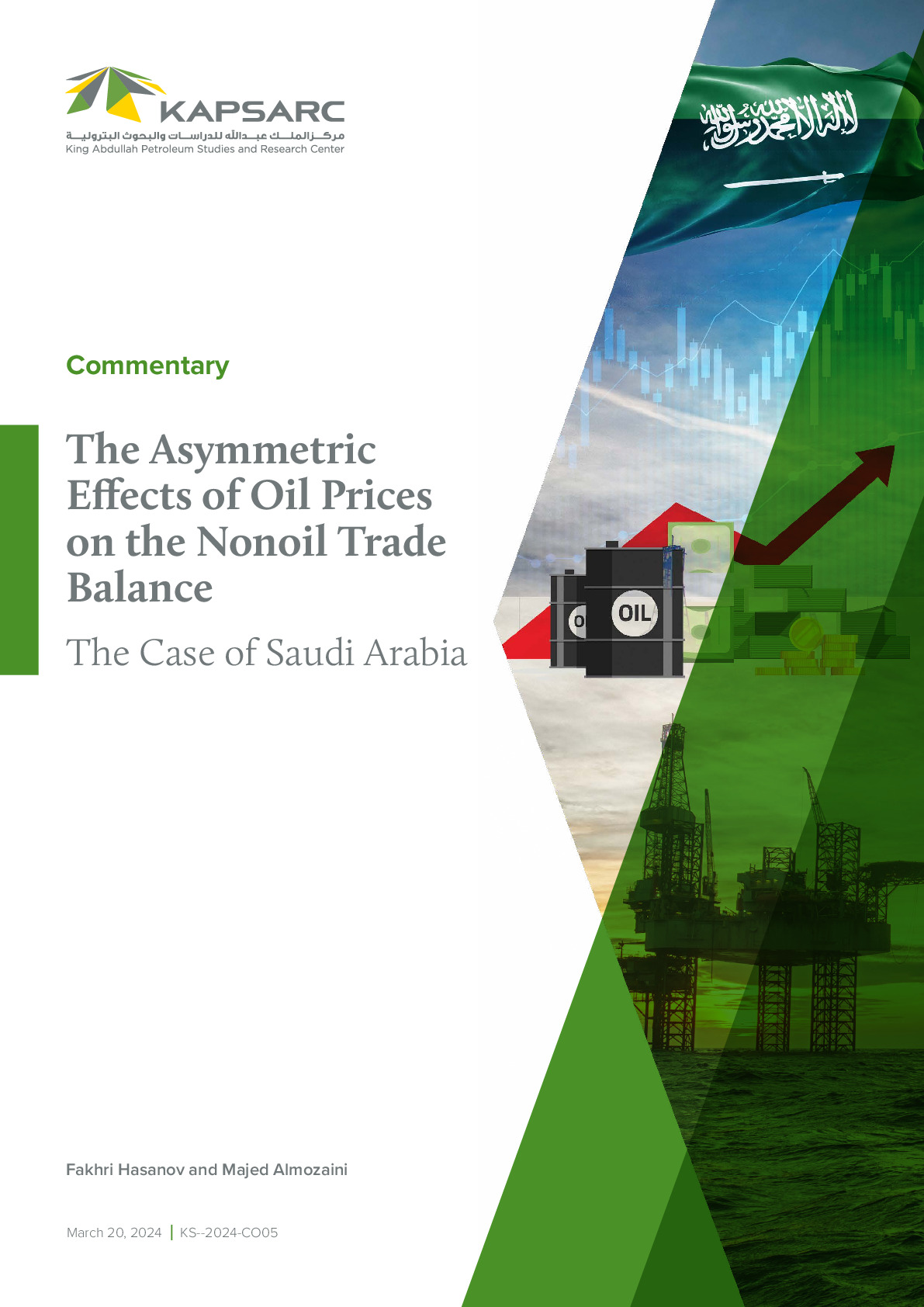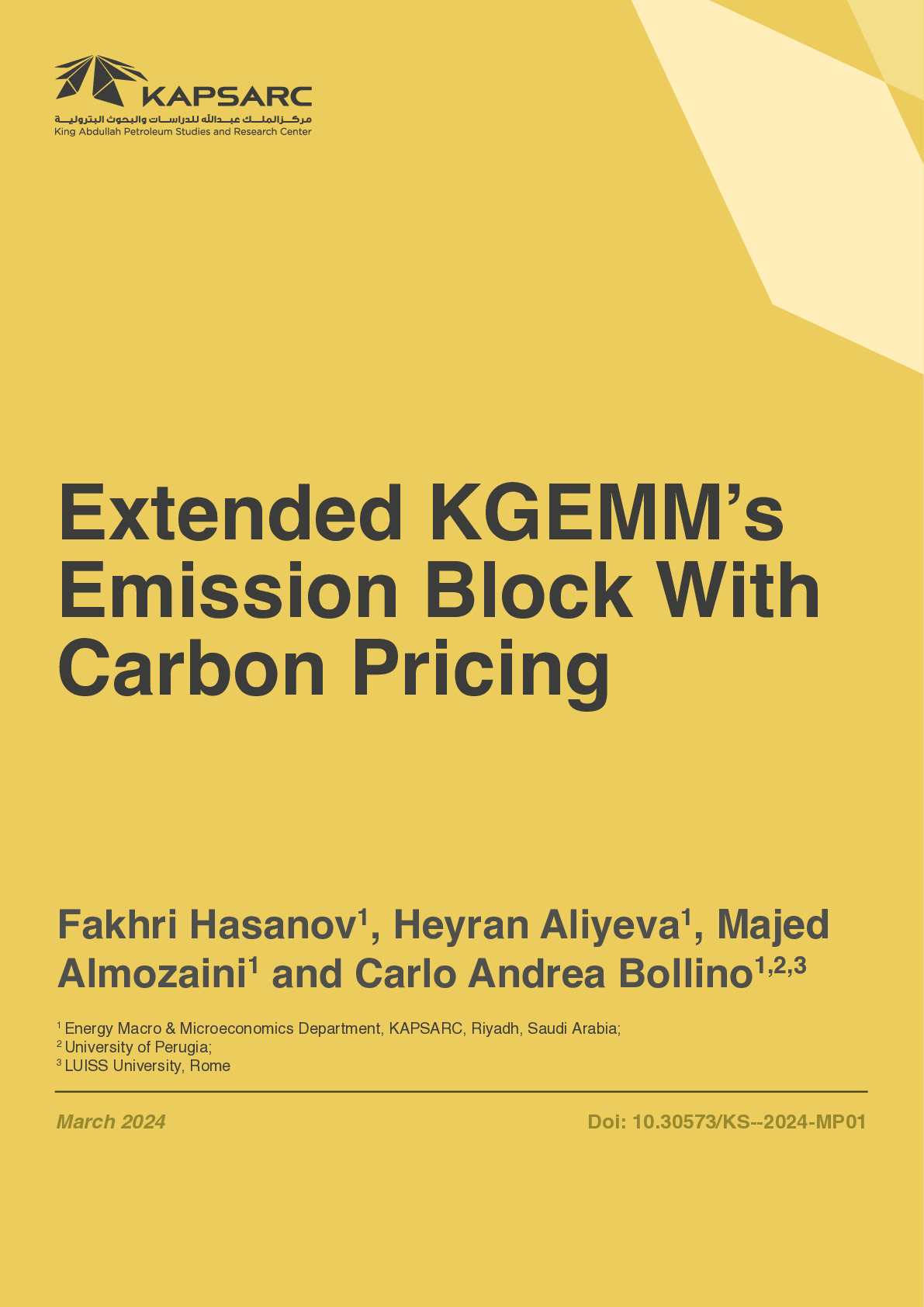Fakhri Hasanov is a senior fellow and leads the KAPSARC Global Energy Macroeconometric Model projects with 20+ years of experience in econometric modeling and forecasting. Since 2015, he has been involved in multistakeholder projects, leading and executing macroeconomic analysis of various policy choices and initiatives (e.g., energy prices, energy demand, and fiscal reforms) for the Kingdom’s economy. He has extensive experience working with policymakers. Prior to KAPSARC, he was a post-doc at George Washington University.
His research mainly covers macro-econometric modeling for energy and environmental economics policy analyses. Dr. Hasanov has authored 50+ applied studies published in reputable journals such as Energy Policy, Energy Economics, Empirical Economics, and Energy Strategy Review. His research is recognized internationally (e.g., he is listed among the top 2% of scientists globally by Elsevier). Fakhri is an editorial board member of various peer-reviewed journals, such as Frontiers in Environmental Science. He holds a Ph.D. in econometrics.





